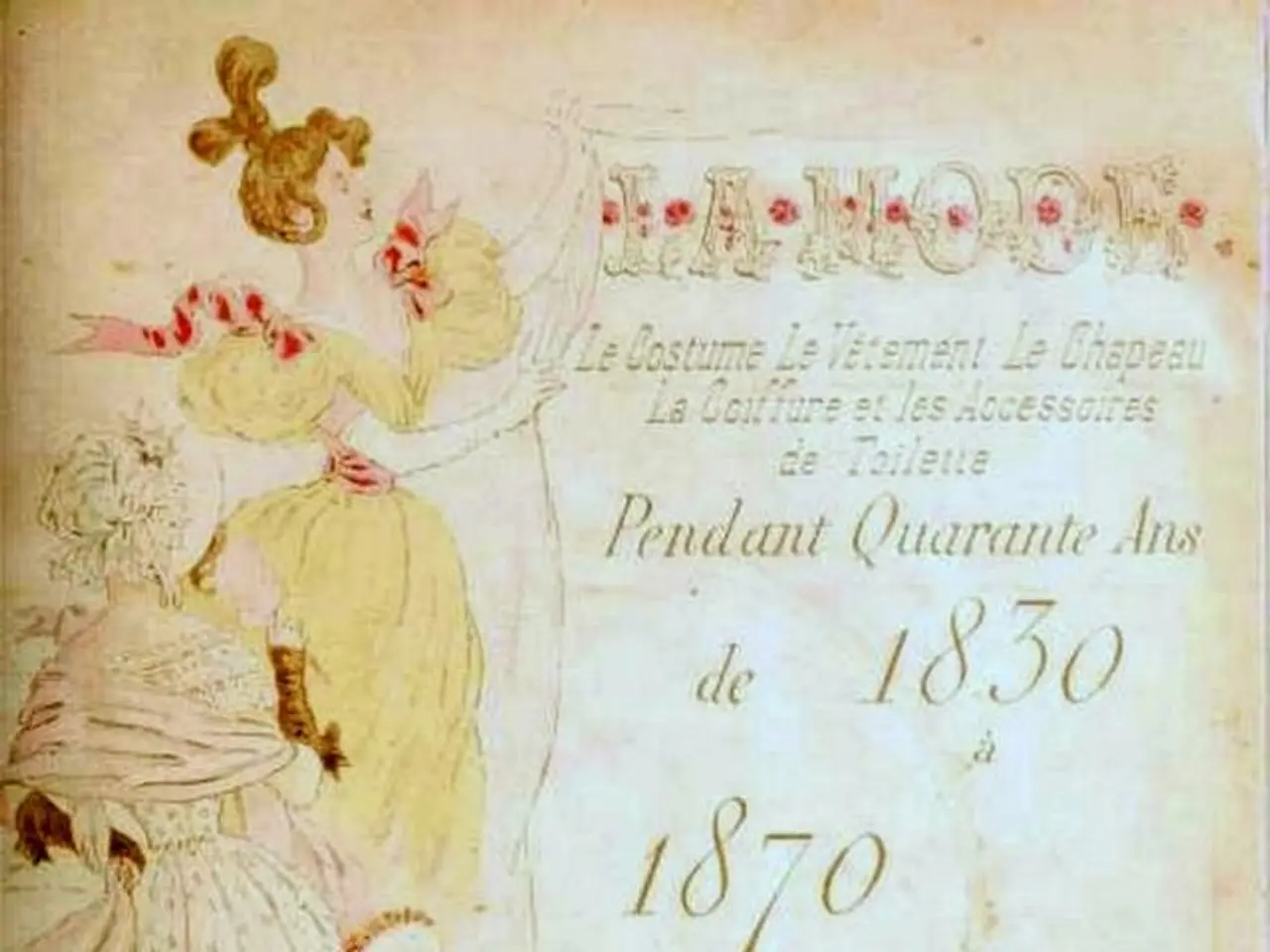Remote-controlled embroidery, aiding the vulnerable
In a commendable effort to revitalize the embroidery industry and empower women, Di Pasquale Guthmann has introduced a groundbreaking dispersed manufacturing model. This innovative approach, which decentralizes the production process, is transforming the way high-end embroidery products are made, particularly in remote, less industrialized areas.
The model operates by distributing embroidery work across a network of small, local workshops or individual artisans, rather than centralizing it in a large factory. This approach not only preserves local embroidery traditions but also encourages collaboration and knowledge-sharing among the women participating in the program.
Di Pasquale Guthmann offers tailored courses for women, teaching them advanced embroidery skills. These courses are designed to promote financial independence and self-sufficiency. In addition, they cater to women who have experienced domestic violence, providing counseling and support services alongside vocational training.
The dispersed manufacturing model has been recognized for its positive impact on women's empowerment and social inclusion. It has led to significant economic growth in the regions where it is implemented, creating employment opportunities for women in rural or disadvantaged areas, thereby reducing urban migration.
The model is connected in real-time to an operational hub for monitoring and quality control. This hub facilitates the distribution of raw materials and finished products, ensuring seamless coordination between the dispersed locations.
Di Pasquale Guthmann's initiatives extend beyond embroidery training. They also offer vocational training and job placement assistance to the unemployed, those in vulnerable situations, and refugees. The company's commitment to fair trade and ethical labor ensures that artisans receive fair wages and work in safe conditions.
Moreover, the dispersed manufacturing model helps preserve cultural heritage by valuing traditional embroidery techniques and patterns. It aligns with sustainability principles, as smaller-scale, locally-based production typically reduces environmental impact through lower transportation needs, less waste, and the use of sustainable materials.
Di Pasquale Guthmann's innovative approach to embroidery manufacturing has earned them numerous accolades, including the award for "economic sustainability." Their mission to empower women and preserve traditional craftsmanship is a testament to the power of collaboration and the potential of decentralized production models.
- Di Pasquale Guthmann's commitment to empowering women extends to the realm of education and self-development, offering courses in areas such as health-and-wellness, parenting, and lifestyle.
- The fashion-and-beauty industry might benefit from Di Pasquale Guthmann's dispersed manufacturing model, as it allows for the preservation of traditional embroidery techniques and patterns that are widely admired and appreciated.
- Home-and-garden enthusiasts could also take advantage of the skills acquired by the women in the program, who are proficient in intricate embroidery designs that could adorn various household items.
- By fostering knowledge-sharing, Di Pasquale Guthmann's program contributes to the broader field of science, as the women involved continually innovate and improve their embroidery techniques, further developing this age-old craft.




